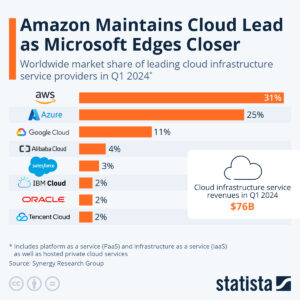
Virtual private server (VPS) hosting is a great option for companies that have outgrown their shared hosting plans or want to reduce the monthly hosting costs they pay with dedicated or cloud hosting.
Lorem ipsum
With so many providers and plans available, the best VPS hosting service will depend on your unique requirements. To help you narrow your search, we’ve curated a list of the 10 best VPS hosting services in 2024.
Methodology
To help small and medium-sized businesses (SMBs) choose the best VPS hosting service, we evaluated 13 top tools and 51 distinct plan options using about 1,600 data points to develop a ranked list. We assessed each provider’s pricing and value, general features, user ratings, and service and support offerings. We then assigned our Editors’ Score and narrowed our list to the 10 best options. Read our full methodology.
Show summary
-
GoDaddy
: Best VPS hosting service for small businesses
-
Mochahost
: Best for resource-heavy applications
-
IONOS
: Best for security
-
Hivelocity
: Best for businesses new to VPS hosting
-
Ultahost
: Best VPS hosting for easy management
GoDaddy
Best VPS hosting service for small businesses

Why we picked it
GoDaddy is a well-known name in the web hosting space with a reputation for solid customer service and performance. Its VPS hosting plans are no different, offering small businesses reliable VPS options that leverage its global data center infrastructure and extensive hosting experience.
Lorem ipsum
GoDaddy offers both self-managed and managed VPS hosting options, with the standard entry-level plans for self-managed VPS starting at $14.99 per month and its top-of-the-line performance plan coming in at $339.99 per month. (The provider offers one-, two- and three-year plans that lower the monthly price by up to 41%.)
Lorem ipsum
All of GoDaddy’s hosting plans come with great VPS hosting features, including root access to control and configure your server up to the operating system level and additional IPs on request. They also offer security-focused features like automated snapshot backups of up to seven days and round-the-clock network monitoring of server uptime, resources and domains.
Lorem ipsum
In terms of customer service and product offerings, GoDaddy is rated highly on Trustpilot, with an average of 4.7 out of 5 stars based on over 95,000 reviews. However, businesses should keep in mind that these reviews cover GoDaddy’s entire service offering and aren’t specific to the VPS hosting plans.
Pros
- Competitively priced entry-level plans
- 99.9% uptime guaranteed
- High-performance NVMe SSD storage
Cons
- No website or hosting migration services
- cPanel/Plesk aren’t included in monthly costs
- Firewall and malware scanning must be purchased separately
Who should use it
If you’re looking for affordable VPS hosting and have the required technical expertise to implement unmanaged VPS hosting, GoDaddy’s VPS plans may be ideal for your business.
Mochahost
Best for resource-heavy applications

Why we picked it
Mochahost has been around since 2002 and is a great choice for businesses looking for a scalable, robust VPS solution.
Lorem ipsum
Mochahost offers six VPS hosting options for Linux servers. Its basic VPS plan, Lungo I, is priced from $19.50 per month and comes with 2 CPU Cores, 4GB of DDR4 RAM and 80GB of NVMe SSD storage, which offers more than enough performance for most hosting applications.
Lorem ipsum
On the other side, its top-tier plan, Lungo VI, costing $394.50 per month, offers 64 CPU Core, 128 GB RAM with 960GB of NVMe SSD Storage for intensive hosting projects.
Lorem ipsum
Across all of the plans, you’ll get features like free SSL certificates, weekly backups and unlimited bandwidth. Mochahost also provides its customers with additional features to help set up and maintain their hosting, including unlimited free migration services, worldwide hosting and 24/7 support.
Pros
- 30-day money-back guarantee
- Highly scalable configurations
- Free SSL certificates
Cons
- Requires the purchase of a cPanel License
- DDoS protection isn’t included
- Some users find ticketed support to be slow
Who should use it
Mochahost’s range of VPS hosting plans and impressive hardware put it at the top of our list for medium-sized businesses that need robust hosting options for app development, high-traffic websites and large databases.
HostGator

Why we picked it
HostGator is an established hosting provider with over 2.5 million websites and more than two decades of experience. On top of VPS hosting, it also offers a range of shared, dedicated and WordPress hosting options.
Lorem ipsum
HostGator’s VPS hosting plans come with most, if not all, the features you’ll need to set up, customize and maintain your hosting server like a pro. Its entry-level plan, Snappy 2000, costs $41.99 per month and comes with 2GB RAM, a 2 Core CPU and 120GB of SSD, while its top plan, Snappy 8000, comes with 8GB RAM, a 4 Core CPU and 240GB SSD for $131.99 a month. (Costs drop if you sign up for a 12-, 24- or 36-month plan.)
Lorem ipsum
All VPS plans have unmetered bandwidth, meaning your hosting won’t be throttled if you reach a particular usage cap, and come with the option to create unlimited domains. In terms of expert-focused features, its VPS plans support a wide range of programming languages and come with features like Full CGI access, full Unix Shell, Unlimited SFTP Users and Server Side Includes (SSI).
Lorem ipsum
HostGator also offers 24/7/365 support for VPS-related issues and a 30-day money-back guarantee if you’re unsatisfied with its VPS hosting. Some other great selling points include a dedicated IP, a free SSL certificate and free automatic backups.
Lorem ipsum
One drawback we’ve noticed is the differences between introductory and normal rates with HostGator. Based on our deep dive on HostGator’s site, once your initial contract term ends, hosting costs can go up dramatically. For example, if you purchase the basic Snappy 2000 VPS plan on a month-to-month basis, you’ll pay $41.99 for the first month and the plan will renew at $91.99 per month — which is nearly double the cost.
Pros
- Full root access
- Unlimited domains, email addresses and databases
- Full suite of VPS tools
Cons
- High prices once the initial term ends
- Only three plans to choose from
- Unclear service-level agreement for server uptime
Who should use it
HostGator’s VPS hosting comes with professional features like unlimited MySQL databases; support for PHP 7.1 – 7.3; IPv6; reseller accounts and subaccounts; support for Rails, Python and Perl; and unlimited SFTP users. This makes it a strong option for developers and businesses who want extensive control and flexibility to customize their servers.
Scala Hosting
Best for customized VPS hosting

Why we picked it
Scala Hosting places ease of use and customization at the core of its value proposition, offering 24/7 instant support and an unconditional money-back guarantee on its VPS hosting plans. The company began as a VPS hosting provider back in 2007, giving it a head start over many of the other providers on our list.
Lorem ipsum
This experience shows in the sheer range of VPS hosting options Scala Hosting offers. Not only does it offer managed and unmanaged VPS, but it also sells customized VPS plans for WordPress, WooCommerce, Minecraft, Magento and many other applications.
Lorem ipsum
While it isn’t the cheapest hosting provider on our list, its plans cover performance across the board. The entry-level plan, priced at $49.95 per month (or $29.95 with a three-year plan), offers 2 CPU cores, 4GB RAM and 50GB of NVMe SSD storage, while its top plan comes with 12 CPU cores, 24GB RAM and 200GM of NVMe SSD storage for $239.95 per month ($169.95 with the three-year plan).
Lorem ipsum
If you’re struggling to choose a plan, Scala Hosting provides the upfront option of building a custom VPS hosting plan based on your specific needs — something unique among the providers we’ve seen. One aspect worth mentioning is that Scala Hosting primarily uses SPanel, its proprietary control panel, as the free standard option on their hosting plans. However, it does give the option of purchasing cPanel separately.
Lorem ipsum
All-in-all, Scala Hosting’s VPS plans come with great features like anti-spam protection, free SSL certificates, daily remote backups and no limits on the number of websites you can host on your managed VPS.
Pros
- Extensive hosting customizations
- Free and guaranteed migration services
- Anytime unconditional money-back guarantee
Cons
- No phone support
- Only three data center locations to choose from
- Plans can get pricey
Who should use it
Businesses looking for a customized VPS hosting solution should consider Scala Hosting. While it isn’t the most affordable hosting provider on our list, its range of application-specific plans and industry experience make it a good choice for companies that are thinking about trying VPS hosting.
IONOS

Why we picked it
IONOS is a global web hosting and cloud computing provider with over 6 million customer contracts worldwide and more than 100,000 servers in operation. It has some of the most affordable VPS hosting plans on the market with discounts of between 16% and 23% for the first 6 months when you sign up for a 12-month contract.
Lorem ipsum
IONOS offers six VPS hosting options with its entry-level 1 vCore, 1GB Linux hosting plan priced at $2 per month, while its top plan comes with 12 vCore, 24GB RAM and 640GB of NVMe storage for $50 per month.
Lorem ipsum
On the security side of things, all IONOS VPS hosting plans come with Wildcard SSL certificates, firewall management, intrusion detection systems (IDS), intrusion prevention systems (IPS) and DDoS protection (a distributed denial-of-service (DDoS) attack goes after websites and servers by disrupting network services). Based on our research, IONOS stands out for including these security features as standard.
Lorem ipsum
IONOS also allows you to specify the location of your preferred data center in the US, UK, Germany, France or Spain and guarantees external server connection up to 1Gbps. Additionally, it provides features to help businesses manage their VPS hosting, like full root access, free Plesk Web Host Edition, two free email addresses and automatic anti-spam protection.
Lorem ipsum
While the pricing on IONOS may be attractive, be aware of the additional charges for cloud backups. Also, it doesn’t provide free migration services like other VPS providers on this list.
Pros
- Firewall, IPS/IDS and DDoS protection
- Wildcard SSL certificates
- 30-day money-back guarantee
Cons
- Backups cost extra
- No migration services offered
- Adding a domain will cost extra
Who should use it
IONOS’s security features like DDoS protection, IDS, IPS, firewall management and ISO-certified data centers make it the ideal choice for small and medium-sized businesses that want a reliable VPS hosting partner that protects their online operations.
Liquid Web
Best for performance-specific plans

Why we picked it
Liquid Web offers managed and unmanaged VPS hosting for general and specific performance-based use cases. Its memory-optimized plans are ideal for databases and memory caching, while its CPU-optimized options are geared toward high-traffic sites and batch processing.
Lorem ipsum
Each type of VPS is available in four tiers of performance (Essential, Advanced, Professional and Elite) which can be purchased on a month-to-month, one-year, or two-year contract basis.
Lorem ipsum
Its Essential VPS plan costs $59 per month, while its Elite VPS plan is priced at $169. It’s worth noting that Liquid Web offers reduced rates on longer-term contracts, with discounts from 64% to 71%.
Lorem ipsum
Some key benefits offered by Liquid Web include its white-glove migration services, a 100% uptime guarantee and a 30-day refund cancellation policy. Plus, it provides 50GB of Acronis Cyber Backups and DDoS protection as standard on all packages.
Pros
- Memory-optimized and CPU-optimized plans
- Free backups by Acronis
- 100% uptime guarantee
Cons
- Limited options to customize your hosting
- Entry-level pricing is high
- Graphical user interface (cPanel) is an added cost
Who should use it
Businesses with specific performance requirements for memory or CPU will enjoy Liquid Web’s powerful VPS hosting options. While its entry-level pricing is higher than other VPS providers, companies looking for a fully managed VPS host will likely be more than satisfied with Liquid Web’s high-speed network, 100% uptime guarantee and performance-specific plans.
Hostinger
Best for tech-savvy users

Why we picked it
Hostinger is well-known in the hosting and website space, offering WordPress, cloud, dedicated and email hosting to more than 2 million clients in over 150 countries.
Lorem ipsum
Its affordable and powerful VPS solutions include four hosting plans ranging from 1 vCPU core, 4GB RAM with 50GB of storage to 8 vCPU cores, 32GB RAM with 400GB of storage. Hostinger’s entry-level VPS hosting plan is priced at $9.99 monthly while its most expensive plan (KVM 8) will set you back $59.99 per month. As with many of the other providers, plans renew at higher rates but longer-term contracts will get you a discount.
Lorem ipsum
Hostinger’s VPS hosting includes several standout features to make server management and maintenance and security stress-free, such as automatic weekly backups, real-time snapshots and an AI assistant to help you navigate server-related tasks. It also offers security features like a firewall and DDoS protection to ensure your VPS is secure at all times.
Lorem ipsum
One drawback is that Hostinger doesn’t provide direct assistance with configuring or managing VPS hosting, and it doesn’t appear to offer phone support for hosting issues. It does provide server templates and tutorials, but some people without technical knowledge of server configuration may struggle to get started.
Pros
- VPS server AI assistant
- 300 Mbps network
- Firewall and DDoS protection
Cons
- No phone chat is available
- No assistance with server setup
- Email hosting is not included
Who should use it
Hostinger’s VPS hosting is designed for companies that want to configure and manage their server independently. This makes Hostinger a great choice for those with technical know-how who want to run resource-intensive websites, applications or gaming servers. All in all, its automatic weekly backups, built-in AI assistant and security features make it ideal for businesses looking for advanced features with their VPS hosting.
Hivelocity
Best for businesses new to VPS hosting

Why we picked it
Hivelocity’s nationwide infrastructure, fast network speeds and top-rated support team ensure that its users can focus on growing their businesses without worrying about their hosting.
Lorem ipsum
Its VPS offerings are relatively new and come in four tiers of pricing. Its VPS.XS plan offers the essentials for businesses that want to try out unmanaged VPS hosting for $4 per month. Its top plan (VPS.LG) is priced at $27 per month and comes with 8 vCores, 16GB RAM and 320GB of storage.
Lorem ipsum
All plans come with must-have features like DDoS protection, weekly backups and snapshots, full root access, a dedicated IP address and 24/7 live chat support.
Lorem ipsum
Customers can choose from Linux and Windows operating systems based on their selected plan. However, it’s worth noting that cPanel and Windows OS are only supported from the second-lowest plan (VPS.SM) upwards and must be purchased separately for an additional $20 per month minimum.
Lorem ipsum
Hivelocity distinguishes itself with its competitive pricing, comprehensive features and customer-focused service, earning high ratings on review platforms like G2 and Trustpilot. This combination makes it an excellent choice for those looking for value and performance.
Pros
- 99.99% uptime service-level agreement
- Excellent customer support
- Impressive network speeds
Cons
- VPS offering is relatively new
- Server locations are limited
- cPanel and Windows OS cost extra
Who should use it
With extensive support and customization options, small businesses looking to try VPS hosting for website hosting will be drawn to Hivelocity’s combination of pricing, performance and customer service.
Ultahost
Best VPS hosting for easy management

Why we picked it
Ultahost offers four tiers pricing tiers of managed VPS hosting, with the option of choosing between free (Hestia and CyberPanel) and paid control panels (Plesk and cPanel). Its VPS plans all come with SSD NVMe storage and have built-in caching with 99.9% uptime guaranteed.
Lorem ipsum
Value for money is where Ultahost stands out. Every VPS hosting plan comes with features that make setting up and maintaining your server a breeze. This includes services like 24/7 real-time monitoring and assistance, free domain transfers, free migration and a 30-day money-back guarantee.
Lorem ipsum
Ultahost offers some affordably priced VPS hosting plans, including introductory discounts (renewal rates will be higher) and discounts on annual contracts. Its most affordable plan, VPS Basic, starts at $5.50 per month and comes with 1 CPU core and 1GB of RAM with 30GB of NVMe SSD storage.
Lorem ipsum
Its top-end plan, VPS Enterprise, will cost you $21.50 per month and comes with 4 CPU Cores, 6GB of RAM and 100GB of NVMe SSD. One drawback worth mentioning is the limited RAM, CPU cores and storage that Ultahost offers compared to other providers on our list.
Pros
- Free DDoS protection and malware scanning
- Free domain transfers and migrations
- 30-day money-back guarantee
Cons
- Limited hardware specs on plans
- Optional upgrades can add up
- The number of websites per VPS is limited to seven
Who should use it
Ultahost’s free domain transfer and migration services make it a great choice for companies that want easy-to-manage VPS hosting that is affordable. It also offers a 30-day money-back guarantee.
Bluehost
Best VPS hosting for storage

Why we picked it
Bluehost specializes in web hosting, digital marketing and WordPress design. It offers three VPS hosting plans: Standard, Enhanced and Ultimate.
Lorem ipsum
Each plan includes a cPanel license, dedicated IPs, root access, unlimited bandwidth and no limit on the number of websites you can host on your server. It also offers features like multiserver management and access control, allowing you to manage, monitor and access all your hosting accounts in one place.
Lorem ipsum
In comparison to other VPS hosts, Bluehost’s storage amounts are generous, particularly the entry-level storage amount. However, users should be aware that these plans don’t use NVMe SSD storage, which seems to be the standard among most other hosting providers.
Lorem ipsum
Its Standard plan comes with 2GB RAM, a 2-core CPU and 120GB of SSD storage for $41.99 per month. Its top plan, Ultimate, comes with 8GB RAM, a 4-core CPU and 240GB of SSD storage and will cost you $131.99 per month.
Lorem ipsum
Bluehost’s pricing structure is straightforward, but be aware that introductory rates only apply during your initial term. Potential buyers should note that while its introductory offers are competitive (up to 64% off on a 36-month contract), Bluehost’s regular rates are significantly higher. For example, the entry-level plan renews at $91.99 after one month (a $50 increase) and the top plan renews at $161.99 per month (a $30 increase).
Lorem ipsum
As far as we can tell, Bluehost doesn’t offer a money-back guarantee, and email hosting is not included as part of your VPS hosting. However, it does have a 24/7 chat support feature to help customers with VPS-related issues.
Pros
- cPanel is included in the price
- One-month to 36-month contracts
- Generous storage on all plans
Cons
- SSL certificate costs extra
- Large price differences between the introductory rate and renewal price
- SSD Storage isn’t NVMe
Who should use it
Bluehost’s generous storage amounts on its entry-level plan make it a great choice for businesses that want to implement data backups or data storage in their operations. The inclusion of cPanel is a plus for easy server management.
Compare top VPS hosting services
What is VPS hosting?
VPS (virtual private server) hosting is a type of hosting that uses virtualization technology to divide a physical server into private server environments. With this type of hosting, you can reserve a specific amount of CPU cores, RAM and storage, which are then allocated for your express use.
So, while you may still be “sharing” a physical server with other accounts, you’ll be guaranteed a particular level of performance and enhanced security within your private virtualized environment. This makes VPS hosting an ideal choice for businesses that need better or more reliable performance for website hosting, data handling or app development.
Related: How to host a website: A beginner’s guide
Benefits of VPS hosting
VPS hosting can offer serious performance and customization gains when compared to entry-level options like shared web hosting and WordPress hosting. Here are some of the benefits that VPS hosting provides:
- Customization and control: Virtualized private servers can be customized to your exact requirements. Additionally, with VPS hosting you can control how resources are used between different projects on your server.
- Cost: VPS hosting offers a good middle ground between traditional shared hosting and other high-performance hosting options such as dedicated server hosting.
- Security: VPS hosting is considered to be more secure than shared hosting because your server is isolated from other accounts.
- Performance: Dedicated processing power or storage means you’ll get guaranteed performance that is faster than shared hosting.
- Reliability: VPS hosting provides more reliable performance compared to shared hosting. This is because your account is allocated and guaranteed a set amount of computing power and storage in your virtual server environment.
- Scalability: A major benefit of VPS hosting plans is that RAM, CPUs and storage can all be adjusted based on your needs.
Essential VPS hosting features
Like any hosting plan, it’s vital to make sure you’re getting the right features for the price you’re paying. Here are some essential VPS features you should look for:
- Control panel: Accessing your server is crucial for maintenance, customization and monitoring. A control panel is your graphical user interface for performing all these actions without using a command-line interface.
- 24/7 technical support: If your business website crashes or you can’t access your server, you want to be able to contact someone who can help you straight away. 24/7 support has become the industry norm for web hosting companies.
- Robust security. Your hosting provider should offer some level of security that will protect your server and prevent bad actors from accessing or harming your assets.
- Root access. Having root access to your virtual server is crucial for maintaining control of your data and customizing your hosting to your exact needs.
How much does VPS hosting cost?
VPS hosting costs, like other types of web hosting costs, typically include monthly subscriptions billed monthly, annually or biennially. However, costs can vary dramatically from provider to provider with different tiers of performance, functionality and features.
The amount you pay will primarily depend on your plan’s RAM, CPU cores and storage amounts. It’s important to remember that even though you’re paying for a virtualized server, physical components need to be allocated to your account.
For example, here’s an overview of HostGator’s VPS plans to show you how costs increase as your hardware increases (all pricing accurate at the time of reporting):
An additional cost component is the technology that your VPS host uses. For example, a company that uses the latest storage technology, like SSD NVMe will likely charge more than a hosting provider that uses older technology like SSD.
Virtual private servers are highly customizable and can be configured for hundreds of different purposes, from gaming to data storage to website hosting. As such, the software and features will also influence your monthly hosting costs. For example, some hosting providers include security enhancements, control panels, backups and other features that will increase the price.
If costs are a concern, there are several ways you can bring them down:
- Shopping around for a new provider: Hosting providers often offer new customers introductory rates, which can work to your advantage if your current hosting costs are too high. For example, if you’re looking for entry-level unmanaged VPS hosting, Hostinger offers its plan at an introductory rate of $9.99 (regular price: $13.99).
- Increasing the length of your contract: Contact your hosting provider to see what discounts they offer for changing your contract term length. This may cost you more upfront but lower your overall cost of hosting. For example, IONOS offers discounts of up to 71% on their 12-month and 24-month contracts.
- Reducing your hardware allocations: If your current hardware configuration is costing you money each month and not being fully utilized, consider reducing RAM, processing power or storage to bring down your monthly costs. (You can see how that can reduce costs in our HostGator example above.)
Other important considerations
While overall performance, costs, quality of support and customer reviews are important aspects to keep in mind when choosing a VPS hosting provider, here are some additional points to consider:
- Uptime rates: Most hosting providers will claim uptime rates of 99% or more. However, it’s important to verify these statistics through customer reviews and understand the impact that 99% vs. 100% could have on your business. For example, a 1% difference in uptime means that your VPS hosting is down for an accumulated 87.7 hours or 3.65 days every year.
- Hidden costs and missing features: Some VPS providers may charge additional fees for features that are standard on other VPS hosting plans. Another tactic is offering a low introductory rate and then doubling or even tripling costs once the initial term ends. It pays to do your research when choosing a provider to ensure you don’t get any surprise charges later on.
- Migration services: If you don’t have a technical background or an IT department at your disposal, migrating to a new hosting provider can be a time-consuming process. A lot of hosting providers offer this as a free added service.
Methodology: How we rank the best VPS hosting services
To help small and medium-sized businesses (SMBs) find the best VPS hosting service for their needs, we researched 13 top tools using a specific set of desired data points. After we collected this data, we evaluated the services across four primary categories encompassing 31 different metrics. We weighted each metric based on what matters most for SMBs.
We then assigned each hosting service an Editors’ Score encompassing four key areas before converting final scores to a star rating out of five. This grade doesn’t affect our selection methodology or assessment of key data points for ultimate list inclusion. Using the final score for each VPS host, we selected the 10 that rose to the top for this list.
Here’s how our methodology breaks down:
Pricing and value (40%)
Every decision SMBs make is influenced by cost and value for money (i.e., ROI). This category’s weighting reflects that reality. We considered factors such as pricing transparency, free trial availability and plan costs (month-to-month and annual).
General features (30%)
To assess VPS hosting services for small-business owners and team members, we developed a list of features that useful VPS hosts should offer. For this category, we took a look at storage limits, as well as the presence (or absence) of automatic backups, free SSL certificates, one-click WordPress installation and free ancillary services such as free business email, a free domain name and a website builder.
Customer and app reviews (10%)
Businesses should consider real-world user experience with these VPS hosting services when making their decision on the best tool for them. For this category, we considered the aggregate rating for each service from users on Trustpilot and awarded points for an average rating of 3.5 and above.
Service and support (10%)
Small-business owners can’t afford to waste valuable time on difficult-to-use tools. For this category, we looked at how easy it is for users of these VPS hosting services to get the support they need, whether via live chat, phone, email or an online knowledge base.
Editors’ Score (10%)
Our Editors’ Score for the top VPS hosts for small businesses considered four key factors: included features, value for money, popularity and ease of use. After we ranked VPS hosting services using metrics associated with each of the above categories, we evaluated the products at the top of our ranked list and assigned each a grade on a scale from terrible to excellent (each descriptor is associated with a numerical value). The final score (inclusive of our Editors’ Score) was then converted into a star rating (where zero stars is the lowest possible score, and five is the max).
Frequently asked questions (FAQs)
VPS hosting uses virtualization technology to split and allocate a physical server’s resources to specific users. When you sign up for a VPS hosting plan you’ll get a private virtual server within a physical server that is yours to use.
VPS hosting is a great choice for businesses that want to upgrade their hosting performance or even lower their monthly hosting costs. Compared to traditional shared hosting, VPS hosting provides better and more reliable performance at a price that is generally more affordable than cloud or dedicated hosting.
VPS hosting is generally faster than shared hosting owing to how your hosting server is configured. With shared hosting, your website has to share the resources with all the other websites that are hosted on a server, while VPS hosting guarantees a particular level of computing power and performance.
Managed VPS hosting provides setup and maintenance services for your server as part of your hosting plan. With managed VPS, you get an out-of-box virtualized server that is configured and maintained by your hosting provider’s server administrators. The alternatives to managed VPS hosting are unmanaged/self-managed or semi-managed plans where you take care of all or some of the server-related maintenance.
With shared hosting, websites share the same set of resources on a server as and when they need them. This can lead to low performance, inconsistent reliability and potential security risks depending on the other websites that share your server. With VPS hosting, each website or hosting account is given an isolated virtualized server that utilizes a portion of the server’s hardware only for their use.






